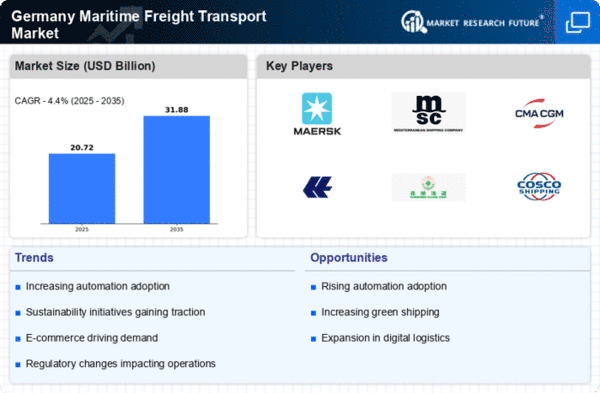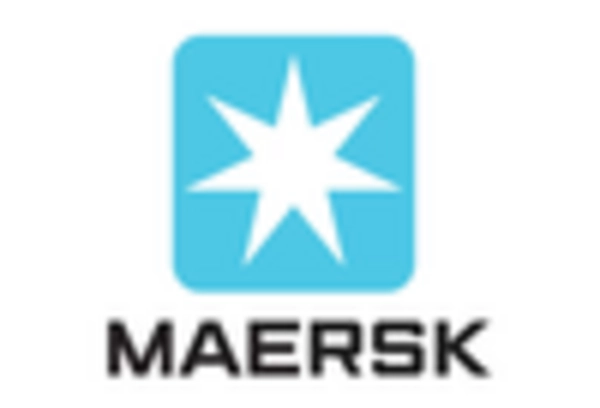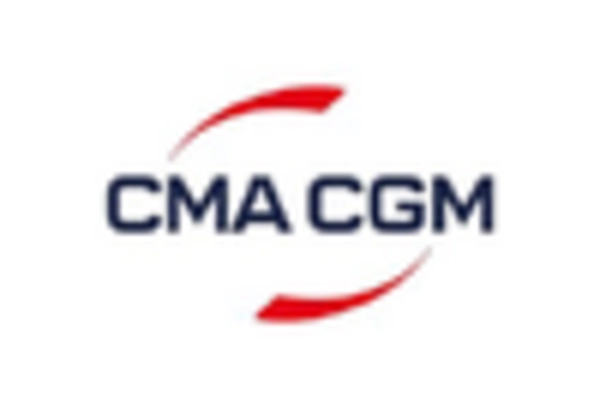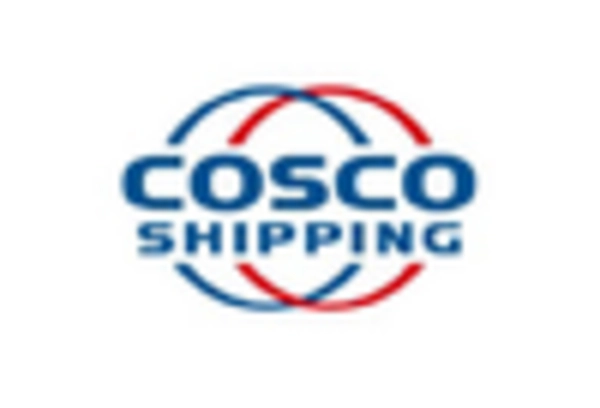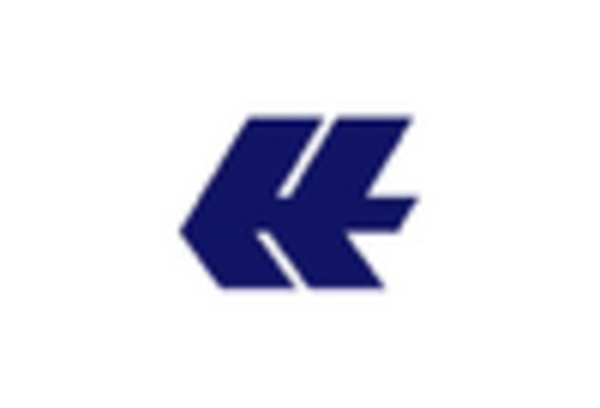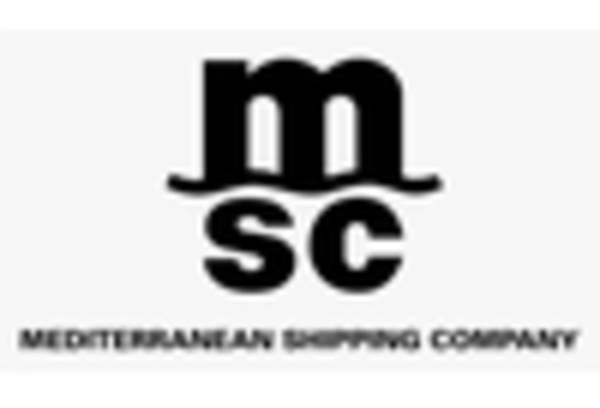Growing E-commerce Demand
The rise of e-commerce has a profound impact on the maritime freight-transport market in Germany. As online shopping continues to gain traction, the demand for efficient and reliable shipping solutions has surged. In 2023, e-commerce accounted for approximately 15% of total retail sales in Germany, driving the need for enhanced logistics capabilities. This trend compels maritime freight operators to adapt their services to meet the increasing volume of goods transported via sea routes. Consequently, companies that can effectively leverage this demand may experience substantial growth opportunities within the maritime freight-transport market.
Strategic Port Developments
Strategic port developments are crucial drivers of the maritime freight-transport market in Germany. The government and private sector are investing in port infrastructure to enhance capacity and efficiency. For instance, the expansion of the Port of Hamburg aims to accommodate larger vessels and increase cargo handling capabilities. Such developments are expected to boost trade volumes and improve the overall competitiveness of the maritime freight-transport market. In 2023, port throughput in Germany increased by approximately 5%, reflecting the positive impact of these strategic investments on the maritime logistics landscape.
Regulatory Compliance and Standards
The maritime freight-transport market in Germany is significantly influenced by stringent regulatory compliance and standards. The European Union has established various regulations aimed at enhancing safety, environmental protection, and operational efficiency. Compliance with these regulations often necessitates investments in advanced technologies and training, which can be costly for operators. However, adherence to these standards can lead to improved operational efficiencies and reduced liability risks. In 2023, approximately 30% of maritime operators reported increased costs due to compliance measures. This regulatory landscape shapes the competitive dynamics within the maritime freight-transport market, as companies that effectively navigate these regulations may gain a competitive edge.
Environmental Sustainability Pressures
Environmental sustainability pressures are increasingly shaping the maritime freight-transport market in Germany. Stakeholders, including consumers and regulatory bodies, are demanding greener practices and reduced carbon footprints. The International Maritime Organization has set ambitious targets for reducing greenhouse gas emissions from shipping, which has prompted operators to invest in cleaner technologies and alternative fuels. In 2023, around 40% of maritime companies reported initiatives aimed at reducing emissions. This shift towards sustainability not only aligns with regulatory requirements but also enhances brand reputation, potentially attracting environmentally conscious customers within the maritime freight-transport market.
Technological Advancements in Shipping
Technological advancements play a pivotal role in shaping the maritime freight-transport market in Germany. Innovations such as automation, artificial intelligence, and blockchain are transforming operational processes, enhancing efficiency, and reducing costs. For instance, the adoption of automated container handling systems has been shown to increase throughput by up to 25%. Furthermore, the integration of blockchain technology facilitates real-time tracking and transparency, which is increasingly demanded by customers. As these technologies continue to evolve, they are likely to redefine operational standards and customer expectations within the maritime freight-transport market.


